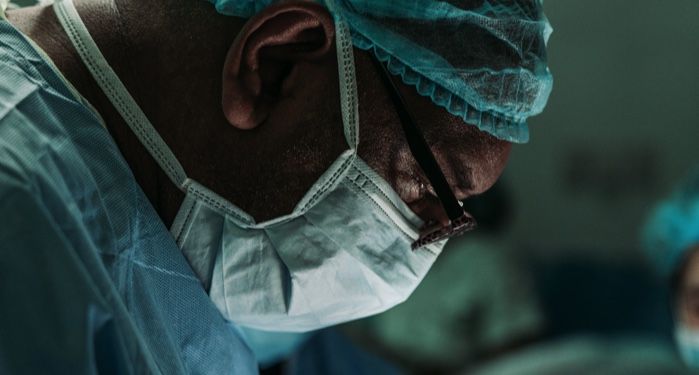Recently I was at an Emergency Room (luckily nothing too serious) and got to talking with the doctors. One mentioned how he had seen some really interesting stuff during his work at home in South Africa. Not being medically trained, I am glad he didn’t offer descriptions of the “really interesting stuff” he was thinking of. It probably involved fluids that I would prefer stayed inside the body (although I did love Rose George’s Nine Pints, so some description is okay). While I don’t love gory details, I do like reading doctors’ memoirs. I probably started with Atul Gawande’s Complications before I found some of these titles. What follows are some of my favorites memoirs by doctors in different settings.
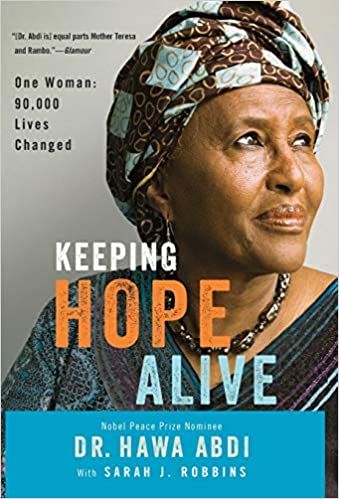
Keeping Hope Alive by Dr. Hawa Abdi with Sarah J. Robbins
Dr. Abdi was one of the first female gynecologists in Somalia. She eventually founded her own clinic and practiced whenever and sometimes wherever needed. This book is about her career and her family life, following both in short chapters that are easy to dip in and out of. However, her life was anything but easy. She faced what would seem like insurmountable odds, but somehow she expanded her clinic and farm to treat some 90,000 people, housing and feeding many, many internally displaced people. She did all this while also fending off attacks from war lords and looters who targeted her because of her efforts. Her life was incredible and truly inspiring. Dr. Abdi passed away in 2020, but her legacy lives on through her colleagues’ and daughters’ work, and through her foundation.
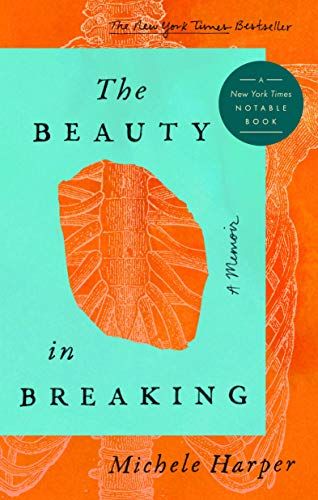
The Beauty in Breaking by Michele Harper
Dr. Harper found herself at a crossroads at a particular time in her life when her marriage had ended and she had just moved to a new city for a new job. Harper is an Emergency Room physician and starts her memoir with some of her early childhood memories. Unfortunately, these are not the easy memories of a perfect girlhood, so the reader should be forewarned that she is frank and descriptive about family violence. And it is that violence that brings her to an emergency room and starts her thinking about all the people she sees there. From this, she switches back to the present and details how her marriage eventually ended and she wound up in a new city without the partner she had envisioned her future with.
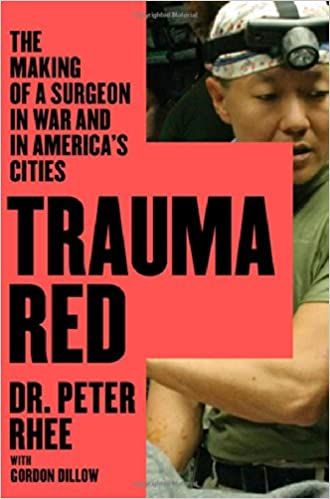
Trauma Red: The Making of a Surgeon in War and in America’s Cities by Dr. Peter Rhee with Gordon Dillow
Dr. Rhee’s time as a trauma surgeon is fascinating. Although I read this some years ago, I still remember details from his time in Iraq and Afghanistan, and how he and a team cared for Congresswoman Gabby Giffords and 18 other victims after a mass shooting in Arizona. While this isn’t for the faint of heart, it is a fascinating read as Rhee takes you through his training and some of his most memorable cases.
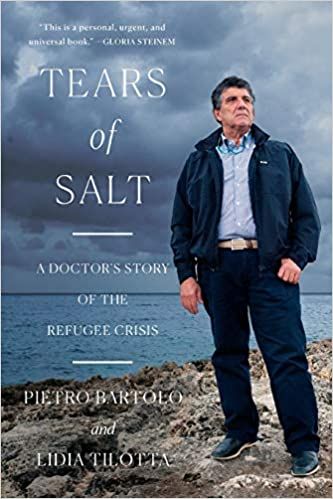
Tears of Salt: A Doctor’s Story of the Refugee Crisis by Pietro Bartolo and Lidia Tilotta, with Giacomo Bartolo and Translated by Chenxin Jiang
Dr. Pietro Bartolo cares for patients on Lampedusa, a small island in the Mediterranean between the North African coast and the southern reaches of Europe. Given its geographic location, Dr. Bartolo has found himself caring for many, many migrants as they struggled to survive the final leg of their arduous journeys — crossing by boat. This is more impressionistic than the other titles on this list, but no less moving.
Bartolo sucks the reader into his world with vivid memories and the shocking details of the kind of medical need that has now become the day-to-day of his professional life. This book is a must-read for anyone willing to learn about the people making the harrowing journey from their home countries (often but not always in Southern Africa) to Europe. Obviously, readers should be prepared for difficult details including of rape and torture. However, these stories need to be read and told. Bartolo says that he is often one of the few people survivors will confide in, and it is my view that their stories should not just rest with him. He has done the world an important service but not letting these stories be forgotten.
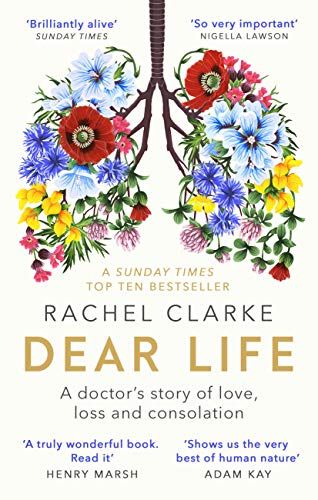
Dear Life by Rachel Clarke
This is a quiet and reflective book from a palliative care physician. Dr. Clarke is thoughtful in her treatment of both her work and personal journey to caring for the dying, and that of her father’s, a family medicine doctor facing his own battle with cancer. Unsurprisingly, a lot of this has to do with death in various forms. However, what is surprising may just be how much reading about death can be comforting in its own way. Clarke guides the reader with an expert hand through her first childhood understandings of death to her current work.
If that’s not enough for you, you can also check out 50 books about medicine. This has some great titles, including The Immortal Life of Henrietta Lacks, which is another must-read if you enjoy engrossing nonfiction.
